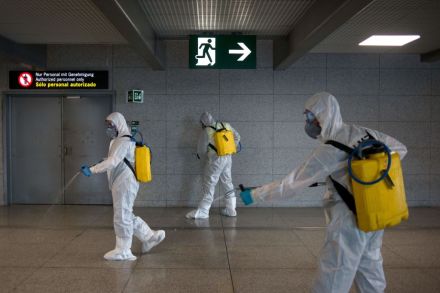How Germany has managed to perform so many Covid-19 tests
Over the past few weeks there has been widespread curiosity about the German healthcare system. Since the coronavirus outbreak, the infection curve in Germany has risen just as steeply as in Italy, and the measures it has imposed are quite similar to those elsewhere. Yet, its death rate is noticeably lower. Of 100,132 Germans who have tested positive, only 1,584 have died, as of this morning. Compared to fatality rates above 6 per cent in neighbouring France, Netherlands or Belgium, that seems remarkable. The most important reason for Germany’s rate is intense testing, using the South Korean model where widespread testing and isolation helped flatten the curve of new infections.





















